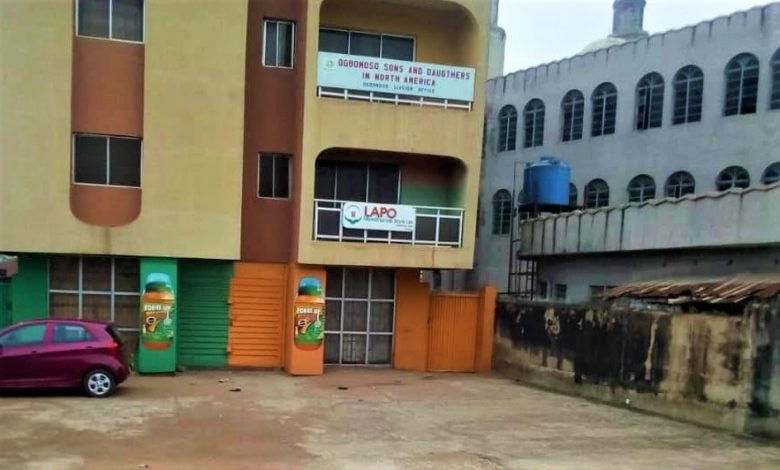LAPO: Struggles Of Female Loan Defaulters Who Sometimes Resort To Prostitution

Damilola* was 22 when she married and fully started trading in provisions and foodstuff. This year, she will turn 45. She had been doing well until the economic hardship caused by the COVID-19 pandemic forced her to default on her payment of a loan obtained from LAPO Microfinance Bank, Ogbomoso branch.
“LAPO” is a household name among residents of Ogbomoso as it gives almost immediate loan facilities once a client can provide evidence of a business venture as well as credible guarantors.
Damilola collected N150,000 and the agreed payment plan was N7,500 every week on meeting days for 30 months, with N1,500 counting as savings for the client. She was neither able to pay nor attend meetings for two weeks, which led to a lot of arguments and disagreement that culminated in the bank service agents locking up her shop.
Her husband and community elders quickly intervened by going down to the bank’s Ogbomoso office. They agreed to pay N24,000 monthly from Damilola’s husband’s monthly salary without her savings allotted to her.
Damilola said older clients of the bank introduced her to an unconventional, “stress-free” way of meeting up with her obligations. They would arrange male suitors for her in exchange for money.
Since the loans are given in groups, her group of debtors meets at a place known as “Ile Bosunla: Osupa,” an old building that serves as a beer parlour. On a visit to the place, it looked like a meeting point with plastic tables at the front of the building and people drinking both alcoholic and non-alcoholic beverages.
Inside the building are rooms and a large space where drinks and bushmeat were displayed near a deep freezer. HumAngle was introduced to two female debtors of the microfinance bank. One has nearly become a full-time commercial sex worker and the other woman had to change her business line from selling alcoholic beverages to stay away from trouble.
In a brief chat with HumAngle, Iya Toyin* confirmed that she collected a loan of N50,000 from the bank and was expected to pay N1,900 every Thursday. Paying back became difficult as a result of the lockdown imposed during the COVID-19 outbreak. Most of her customers were people living in the neighbourhood, especially commercial motorcycle riders (okada) and labourers, and she had to shut down her business.
At one of the debtors’ meetings, she agreed to have a “man-friend” and things changed. She now has up to four regular male clients who have sexual intercourse with her and is able to pay her debts promptly.
“I now sell two things,” she said. “But, when I think about it, I feel useless, worthless and wasting.”
In a related case, Ayo* also collected N50,000 and started paying without problems for some weeks. But her husband fell ill and she used part of the fund to pay his medical bills. Her business of selling spirits and pepper soup also took a downturn because of the pandemic and she could no longer keep up with the payment schedule. And so, during one of their meetings, she was linked with a male client who helped her with the debt. She has since stopped applying for loans and had to change her business but is overwhelmed with grief because of the experience.
“I feel better and free but I regret that I saw another man because of money,” Ayo said.
HumAngle put a call through to the LAPO office in Ogbomoso and spoke with the clients’ service agent, who organises the groups. Identifying herself as Kate, she denied knowledge of any unlawful atrocities surrounding the bank’s facilities and emphasised the company’s desire to provide financial services to women.
She said the group lending method was adopted to support the financial needs of low income earners and small business owners, with the repayment schedule reflecting their income patterns.
Philip Adeyanju, a relationship manager with Guaranty Trust Bank, said with the group credit system, the debtors were supposed to be their brother’s keeper. He also blamed many beneficiaries for not using the money properly and said the method of collection usually involved the group leaders, “but when individuals use such capital for a different purpose and can’t give an account, it becomes a problem.”
Women in Nigeria face special economic constraints in acquiring and using human capital.
A professor of Economics at the University of Ibadan, Kassey Garuba, cited persistent gender barriers as obstacles to women advancing the health and economic security of their families and recommended the promotion of economic growth that would include women.
She further stressed that the true remedy of poverty in Nigeria should begin with providing free education and skills training to the needy women and girls to assist them to secure employment, either in their localities or elsewhere.
Recent statistics from the National Bureau of Statistics have shown education as a key indicator that contributes to poverty alleviation among women, further underscoring the need to improve girl child education.
Support Our Journalism
There are millions of ordinary people affected by conflict in Africa whose stories are missing in the mainstream media. HumAngle is determined to tell those challenging and under-reported stories, hoping that the people impacted by these conflicts will find the safety and security they deserve.
To ensure that we continue to provide public service coverage, we have a small favour to ask you. We want you to be part of our journalistic endeavour by contributing a token to us.
Your donation will further promote a robust, free, and independent media.
Donate HereStay Closer To The Stories That Matter




